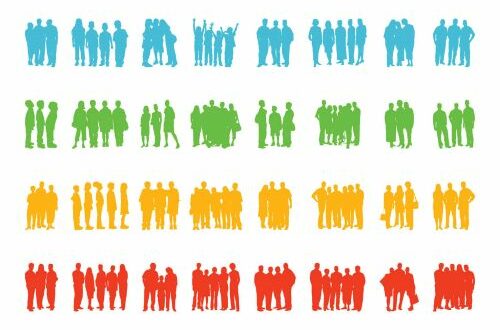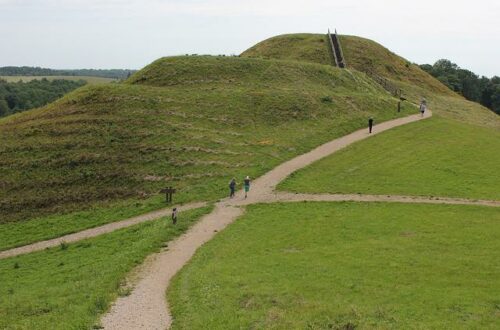Hike Higher into the Heart of God
Humans construct pyramids, compose symphonies, crack quantum physics, cross The Sahara, and crest Everest. Yet the greatest thing we ever do with our lives is entrust them to the person of God. Such entrusting occurs as we hike the mountains of life, encountering Him and relying upon His character.
God provides Scripture as a map for the journey, but sometimes we leave it crumpled in our back pockets. We capitulate to culture, affirming human reason and experience as adequate to navigate the mountains. Sometimes we wrongly rely on others and their interpretations of the map—a podcast here, a conference there. We construct our own concepts.
Forecasting this, God stakes His attributes like signposts throughout creation. But everything from daytime television to dogma dulls our perception. False images billboard bodies we do not have. False narratives bomb sins we cannot forget. We tunnel inward, stare downward, gaze backward. Our perspective skews and forces the trajectory off. Way off. We camp out in caves of misconceptions. We perceive God as Stalin in the Sky—sinister and serious—and we buckle in fear like beggars. He is Abe Lincoln in his monument—sedentary and subdued—and we become bored. He is Willie Wonka—success-mongering and silly in dispensing goody gumdrops in this earthen factory—and we become pleasure seekers.
Wait. God actually designed us to seek pleasure…but of a certain kind. If we follow the signposts staked and use the map, we locate the pleasure of God in His work of salvation. The apostle Paul put it this way:
“In love he destined us for adoption as his children through Jesus Christ, according to the good pleasure of his will, to the praise of his glorious grace that he freely bestowed on us in the Beloved.” (Ephesians 1.4-6, NRSV)
Do you see it, that pleasure of God, barely legible with the graffiti of predestination and adoption covering it? The doctrine of adoption asserts God’s use of mind and will in salvation, yet often we miss that he also engaged an emotional aspect: pleasure. The infiltration of postmodernity into the Church evidences itself as believers and nonbelievers wrestle through this reality. How could a man mocked and charged as a criminal for asserting His first-amendment rights experience pleasure in such suffering? Pleasure requires personal preference and instant gratification, doesn’t it? A man stripped, shackled, and strung-up sensing satisfaction? Preposterous.
With the map remaining crumpled in my back pocket, I offered no counterargument. With my perspective skewed and perceptions dulled, I lacked a concept of a God who delights in anything like that or anyone like me. For years I pitched my tent on trails of thought like “I’m not enough and I’m too much.” Then the Spirit reset my trajectory and renewed my perception. He unfurled the map and showed me that God wanted to save in such a way. Doing so gave Him great pleasure.
This emotion of pleasure (Greek, eudokia – eu, “good;” dokia, “to think or be of opinion”) means “good thought.” In its objective sense, pleasure incorporates the rational decision of God to save and extending benevolence toward sinners. Such pleasure possesses a measurability—salvation—which suits our logic. We close the case at the altar call or baptismal pool. Salvation? Check!
But if we explore the subjective aspect of eudokia we discover the emotions God experiences concerning salvation. His work, in and of itself, satisfies His senses. His heart captivated and eyes captured as He admires the acrylics of salvation stroked across the canvas of history.
The proof is inscribed on the map. Ephesians chapter one connects dots already scattered throughout the map. The first animal which God sacrificed pleased him (Gen 3.14). The sacrificial system established by God as a means of His granting atonement, forgiveness, and righteousness pleased him. Even the aromas pleased (Lev 1.4, 9, 13, 17; 4.20, 35; 5.6, 10, 13, 16, 18). All the works of God are wonderful (Ps 139.14) and salvation is one such work (Ps 149.4).
Christ does not enjoy his suffering; yet He takes pleasure in the crucifixion aspect of salvation, though it lacks all prettiness and preference postmodernity requires. A whip studded with shrapnel blasts His back. A crown of thorns burrows His brow. Fists beat Him beyond recognition. Nails billboard His body to a stake. For a good purpose.
The proof is inscribed on the Savior. Scars eternally and indelibly mark His glorified body as He sits enthroned at the Father’s right hand (Ps 110.1; Mk 16.19; Lk 22.69; 24.39-40; Jn 20.27). Jesus carries the scars of His work into the new creation as a testimony that He saves for His great pleasure and praise. If displeased with salvation, Jesus would rid Himself of its evidence. But the pleasure of God accommodates scars, is proven by scars.
God saves. Not because He foresaw our holiness, but because He determined to make us holy; not because He foresaw our righteousness, but because He determined to give us His; not because He foresaw our love, but because He determined to love us to such depths, heights, and breadths that our only response could ever be love. The aspects of His character with which we are the most comfortable are the areas of our lives that we most readily entrust to Him. When we entrust our lives to God in His pleasure, the evidence is palpable: praise.
Three times in Ephesians chapter one Paul commands, “Epainos! Give commendation to God! Give a recommendation to the world for the glory of His grace!” We do so in song, dance, prayer, rejoicing; in living as sacrifices who offer pleasing aromas (Ps 149.1-4; Ro 6.13, 12.1-2; Heb 13.5).
Do we have all the answers? Nope. So we follow as He leads higher up and deeper in. Is the journey unpredictable? Yep. So we entrust ourselves to His character. We unfurl the maps and walk with the Spirit who renews perceptions and re-sets perspectives. The mountains await, beloved. We must go.




